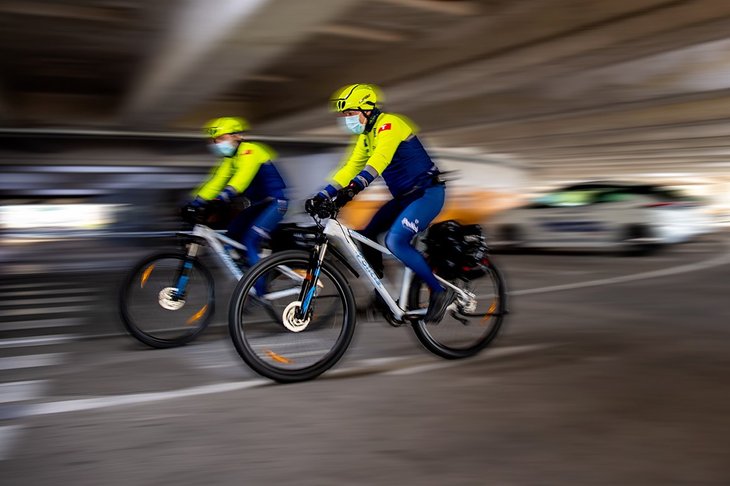Patrolling on a bike by Porto Municipal Police speeds efficiency and mobility
Article

Miguel Nogueira
For several years now, municipal police officers take to the streets in Porto riding their bicycles. First there was surprise and astonishment; now it is just usual for residents and visitors to come across police officers on bikes.
This is a proximity job and one that is more visible among residents. Officers António Ribeiro and Rui Silva, aged 53 and 51, respectively, and pioneers of Cycle Patrols in the Municipality of Porto. They patrol on a bike for many kilometres and say that “the average shift takes circa 25 to 30 km”.
“It’s been five or six years since we started” and now there are eight municipal officers within the Municipal Police, operating in four teams of two agents. The shift is daily, from 7am to 1pm and from 2pm to 8pm. There is a one hour gap in the timetable due to the pandemic and the measure sin place to fight Covid-19, namely to avoid officers from crossing paths.
Each team patrol the city in two main areas: the Historic Centre and pedestrian routes and the seafront area. These past few days also included the bike paths that are already in place.
"The seafront is quieter, although it is usually more hectic during summer”, António Ribeiro states. “There are more rapports in pedestrian areas, as people approach us for information, for instance”.
In addition, this type of patrolling means more visibility and proximity to the population and Cycle Patrols also deal with traffic supervision. The average is 45 incidents a day, as regards parking in Bus lanes, cargo areas, double line parking, and sidewalks are part of the work routine of António Ribeiro and Rui Silva: "It is unpleasant to those who break the law, but someone has to do the job”.
Only under really bad weather the Cycle Patrol remains inside and the municipal officers drives patrol cars. “But even when the rain is smooth, we gear up and go on a bike patrol”, the officers state.